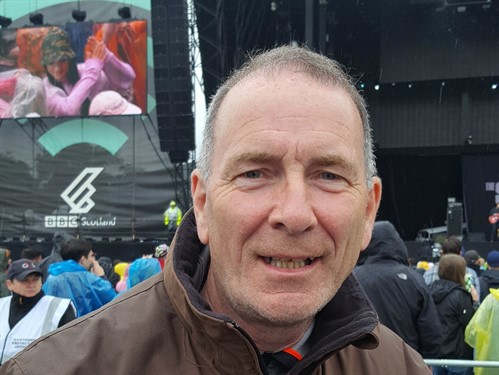Content is king for conference success
Modern day Glasgow has emerged as one of the world's leading
conference destinations. This is no idle boast; as evidenced by the
recent publication of data by Glasgow Convention Bureau, which
reinforces the importance of business tourism to the city's
economy.
The figures show that Glasgow attracted more conference business
in the past financial year than ever before. Over 530 conferences
were held in Glasgow in 2018/19, bringing nearly 160,000 delegates
to the city. Collectively, UK and international meetings were worth
just over £150m in delegate spend.
And, this success looks set to continue, with Glasgow confirming
conference business on its books until 2024 and bids in planning
through to 2026.

Against this hugely positive background, it's worth reflecting
on what makes a successful conference?
For me, the answer to this question is relatively simple. It's
content.
Content is, and always will be, the driving force which
motivates people to attend events like the State of the City
Economy conference (SoCE), Glasgow's principal economic event, now
into its 22nd year,
Yes, the venue is important, especially in its
ability to cope comfortably with anticipated numbers. Glasgow
scores highly in this respect, with a fantastic array of conference
and event venues.
There's also when the event takes place and
it's vital for the event organiser to understand and avoid times
when the intended audience will have different priorities and
competing demands. These can include key holiday periods, other
competing events and important industry deadlines. For example,
accountants tasked with completing tax returns for their clients
are unlikely to sign up for an event in mid to late January!
Many business conferences are also rated by the networking
opportunities afforded. As such, the who, i.e. the
audience profile, is a further driver to attendance. In the case of
SoCE, the public and private sectors, large and small, together
with the third sector, are well represented. This underlines the
city council's recognition that the future success of the city
economy and its ability to deliver benefits for all is best
achieved by a truly collaborative effort, involving the widest
representation of our community.
Clearly, having the best venue, at the most convenient time with
the right audience is hugely important but all of these
prerequisites matter little if the content is poor, the presenters
unremarkable, and the facilitation haphazard.
The content at SoCE focuses sharply on showcasing the economic
development of Glasgow and the wider Clydeside region and looks
forward to the next 12 months, offering an insight into the future
direction of the city.
At the most recent SoCE, there were top quality presentations
from authoritative speakers, including
Professor Sir Jim McDonald, Principal & Vice-Chancellor,
University of Strathclyde and
Professor Sir Anton Muscatelli , Principal & Vice
Chancellor, University of Glasgow, all superbly facilitated by
Greg Clark, the renowned global advisor on cities.
In terms of content, I believe the event is invaluable in
providing a broad outline of how Glasgow will change in the months
and years ahead.
It also provided an opportunity to discuss COP26, probably the
biggest event of its kind to come to Scotland and Glasgow in
particular. More information will be made available in the months
ahead, though it can only benefit the worldwide exposure of the
city in November and beyond.
Keep up to date with all the business and
community news from Glasgow's IFSD by subscribing to our monthly
e-newsletter or connecting on LinkedIn
and twitter.
#IFSD